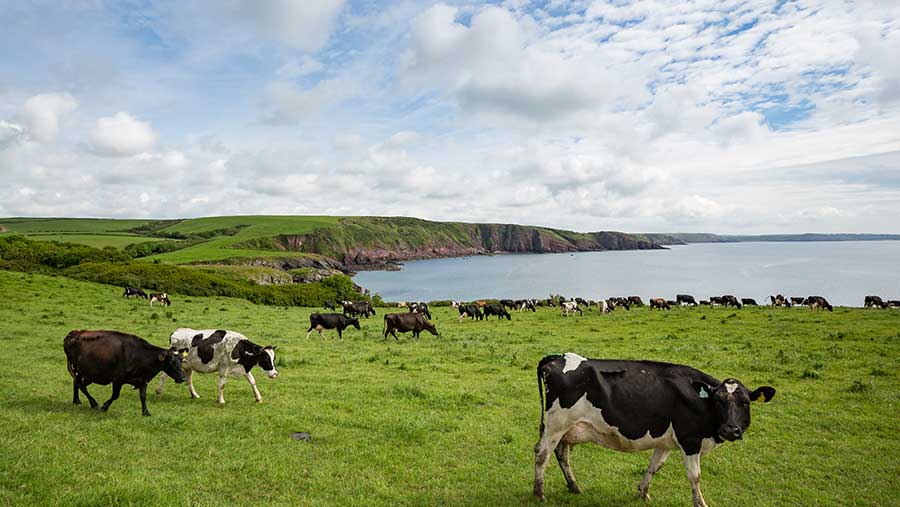Editor’s view: Welsh farmers are simply fed up with being fed up
 © Michael Evans/Adobe Stock
© Michael Evans/Adobe Stock Please mind the gap. A phrase that will be familiar to anyone who has stepped aboard a Tube train on the London Underground.
It sprang to mind again some 200 miles away as I swapped the congestion and clutter of London for the bellowing and bustle at the Welsh Winter Fair in Builth Wells.
See also: Editor’s view: Latest chapter in Red Tractor saga is baffling
Not because this splendid market town is slightly less well served by public transport than London, but because of the widening gaps appearing between rural aspiration and the political appetite to enable it on a slew of topics linked to livestock farming in Wales.
A sheen of positivity hung over the event, the alleys were thronged, the livestock looked magnificent (although I suspect a lot of the cattle would have been born via the side door), stalls did a brisk trade, and schoolchildren were brought in by the busload to see farming put its best foot forward.
Yet anxiety is palpable underneath the polish about newish topics such as the Habitat Wales scheme and older thorny problems such as bovine TB.
In my discussions with farmers on the day, and at our Farmers Weekly Question Time event in the evening, it is apparent how fed up with being fed up folk are.
We are a resilient industry that is well able to tackle problems large and small at a farm level, but there are too many things overhanging the sector that seem beyond our ability to influence, particularly as the Senedd imposes fresh budget cuts.
I am as fed up as many of you about having to focus continually on the gaps and pitfalls ahead rather than all the things we are doing brilliantly
Some are choosing to protect themselves from the doom and gloom by putting their heads down and ploughing on regardless of what’s coming down the track. Others are already feeling the effects.
Consider the dairy farmer at Question Time who asked the panel’s advice on what he is supposed to do, when he is shut down with TB, with the excess slurry he normally exports to other farms.
He needs to avoid falling foul of the new nitrate vulnerable zone rules that will cap the amount of slurry he can spread on his own land, but he will be banned from sending slurry to other holdings to avoid spreading the disease.
What should other dairy farmers who are considering stocking beyond the carrying capacity of their own land learn from his situation?
Should they conclude it is the government’s fault for throwing so many legislative beartraps in the way of an enterprising farmer trying to grow a business?
Or will they learn with the benefit of hindsight that he has underestimated a strategic threat to growth and conclude that a model of farming reliant on exporting nutrients will be too risky in the future?
What of the upland farmers who have been beneficiaries of significant environmental payments via Glastir and are now seeing the rug pulled from under them through the muddled and underfunded Habitat Wales scheme?
Should other upland farmers who did not partake in either scheme conclude that a more productivity focused mindset was correct all along, rather than being reliant on government handouts in return for government meddling?
Or will those who continue to choose to engage be best placed to take advantage of the full-fat Sustainable Farming Scheme when it arrives?
I am as fed up as many of you about having to focus continually on the gaps ahead rather than on all the things we are doing brilliantly. But wishes won’t stop the fact that right now it seems there are plenty of pitfalls in the road ahead.

